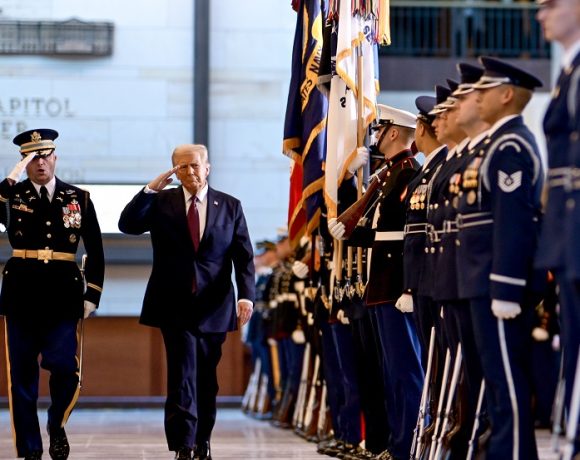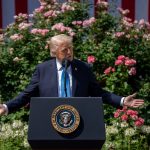
Trump’s Tariffs Take Effect: Global Markets Slide, Trade Tensions Escalate
On April 9, 2025, the United States officially implemented sweeping tariffs on imports from several nations, most notably slapping a 104% total tariff on goods from China. The aggressive trade action, part of former President Donald Trump’s broader economic agenda, triggered immediate retaliatory measures and sent shockwaves through global financial markets.
Trump Tariffs Target China, Europe, India
The newly enforced tariff regime includes a 10% flat duty on all imports, followed by country-specific hikes. China has been hit the hardest, with the total effective tariff on its exports reaching 104% after an additional 50% hike was added to existing duties. The European Union faces a 20% tariff increase, while Indian exports to the US now attract a 26% levy.
The US administration justified the move as a necessary corrective step to address trade imbalances, protect domestic jobs, and revive American manufacturing. However, the sweeping nature and scale of the tariffs have sparked alarm among global leaders and investors alike.
Global Financial Markets React Sharply
Financial markets around the world responded with significant losses. In the US, major indices fell sharply, with the Nasdaq Composite down nearly 21% year-to-date and the S&P 500 dropping over 15%. Asian stock markets saw steep declines amid concerns over the deepening US-China economic conflict. In Europe, pharmaceutical firms warned of production shifts to the US in anticipation of additional duties on medical imports.
Retaliation from China and EU
China responded swiftly by announcing its own set of retaliatory tariffs, adding 50% to existing duties on all US imports, bringing the total to 84%. Chinese officials described the American move as unilateral economic coercion and declared they would “fight till the end.” The European Union, too, is preparing a counteroffensive by listing US goods worth $28 billion for potential tariff hikes.
Indian Markets and Economic Impact
India, facing a 26% tariff on its exports to the US, has been caught in the crossfire. The NSE Nifty 50 dropped by 0.61%, while the BSE Sensex fell by 0.51% as investor sentiment turned bearish. The Reserve Bank of India’s recent interest rate cut to stimulate growth did little to shield markets from the global sell-off.
Economists warn that the widening trade war could have far-reaching consequences—disrupting supply chains, fuelling inflation, and increasing the risk of a global recession. Business leaders argue that while the tariffs aim to protect domestic industries, they may ultimately burden consumers and undercut global demand.
With geopolitical tensions rising and retaliatory trade measures piling up, the global economic landscape enters a period of uncertainty. The world now waits to see whether diplomacy can intervene before a full-blown trade war destabilizes an already fragile global economy.


















